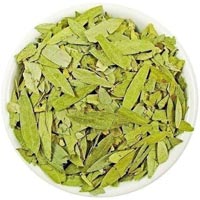A systematic study on cupping operation, directed by:
1. Prof. Dr. Mohammad Nabeel Al-Shareef
2. Prof. Dr. Fayez al-Hakeem
3. Prof. Dr. Mohammad Mahjoub Jeiroudi
4. Prof. Dr. Sa’ed Mokhless Yakoob
5. Prof. Dr. Ahmad SamirAI-Nuri
6. Dr. Mohammad Fuad Al-Jabassini
Our laboratory performed a blood-study on (330) cupped persons and the findings were as follows:
Cupping operation applied according to the correct scientific rules which are:
Cupping applied on men who are over the age of 20 years, in the early morning, on fasting, in spring, during the second half of the month of lunar calendar and on the upper part of body back, we found:
- 1. Moderating of blood pressure and heart pulse: where they became normal after applying cupping in all cases. This lessens the big loads tiring the heart.
- The blood sugar level decreased in diabetic patients in a concentration of 39% of its high concentration (level) after cupping.
- Rise in number of red corpuscles within normal limits in 33% of the cases, and remained within normal limits in the rest cases. This proves the effect of cupping in activating the marrow.
- The shapes of red corpuscles in the cupping blood were always abnormal in all the cases:
- Hypochromasia.
- Burr cells,
- Target cells,
- Crenated cells.
Note: The blood samples were taken directly from the wounds before putting the cupping cups lest their low pressure may affect the shapes of the blood corpuscles.
- Rise in number of leucocytes in 60% of cases. This indicates that cupping operation stimulates the bone marrow for generating new corpuscles. The rate of rising is 10-15%.
- A very small number of leucocytes in the cupping blood in all cases of study. It varies only between 525-950 corpuscles/mm3. This requires a developed study to reveal the behavior of leucocytes in non-exiting with the cupping blood and consequently, the mechanism by which cupping operation keeps the components of immunity system.
- Fall in the count of neutrophils in the cupping blood.
- Rise in the percentage of lymphocytes (52-88%) in the cupping blood in all cases, while in normal case it should not exceed 35%.
- Moderate level of iron ions in blood. It turns to the normal limits (60-150) if there is a rise or fall in it. Rising of iron ions rate to the normal limits in blood may be ascribed to improving of its absorption in the intestines.
- T.I.B.C. was normalized within normal limits in all cases after cupping.
- The level of triglycerides in blood was lowered in 83% of cases having high one of it, and it was normalized in the rest of cases.
- The value of cholesterol in blood was lowered, in patients suffering of its high level in, 70% of the cases. This indicates an activity of liver cells so the liver performs its functions as metabolizing and discharging the surplus cholesterol and triglycerides perfectly.
- The value of uric acid decreased to its normal limits in blood after cupping.
- The platelets count increased – within the normal limits in the venous blood after cupping.
- Moderating of values of (SGOT-SGPT) in the venous blood after cupping.
- High value of creatinine in the cupping blood while it becomes low one within normal limits in the venous blood after cupping.
- Moderate level of blood ions (Ca – K – Na) in the venous blood after cupping.
Note: the rate of plasma in the cupping blood was less than 20%, while the rate of the other components was more than 80%. This reflects well on blood circulation in the body and lessens the chance of forming clots.
Note: the cupping blood coagulated despite putting it in tubes containing anti-coagulation (K3EDTA). This indicates that the cupping blood is abnormal.
Tests on cupping operation in conditions violating its precise scientific rules:
- Tests on cupping under the stated age, the studies proved that there is a big difference between the cupping blood taken from cupped-persons over twenty years old (which is the suitable age for cupping) and that of persons under this age. The results showed big similarity between the later blood and the normal venous blood in the count of erythrocytes and leukocytes and the normal shapes of the red corpuscles, as well as in the uric acid, the triglycerides and cholesterol.This proves the false of any saying calling to perform cupping on persons under twenty years old. But the right condition is over this age, because the physical growth of man stops, therefore he needs cupping.
- Tests on cupping after breakfast, the cupping blood in this case seemed to be almost similar to the venous blood concerning the blood cells general count, the blood smear, and the normal shapes of the red corpuscles in both of them. This affirms that the cupping operation should be applied only before breakfast in the morning. Having food activates the blood circulation so as to help in digesting it and transporting the aliments to all parts in the body. This causes to carry away the blood sediments (aged, dead and tear red blood cells and other unwanted of blood materials) which have settled temporarily between the scapulae during the night (sleeping).
- Tests on cupping applied on places other than the upper part of the back, the’ medical team performed many cupping operations on different places of body such as the leg and over the jugular veins, but the tests of the blood coming out of the cupping scratches in these places showed that it was too similar to the venous blood concerning the blood cells general count, the blood smear, and the normal shapes of the red corpuscles in both of them. Thus we can say that there is no substitute for the cupping on the upper part of the back (the true place of cupping on body).
- Tests on cupping out of its regular time, when performing the cupping operation at times other than its suitable one (that, in times other than the days of April and May corresponding to the second half of the Lunar month) and after making analytic studies on the blood of this cupping, the medical team found that the blood taken from this cupping have specifications similar to those of the venous blood concerning the blood cells general count, the blood smear, and the normal shapes of the red corpuscles in both of them.


